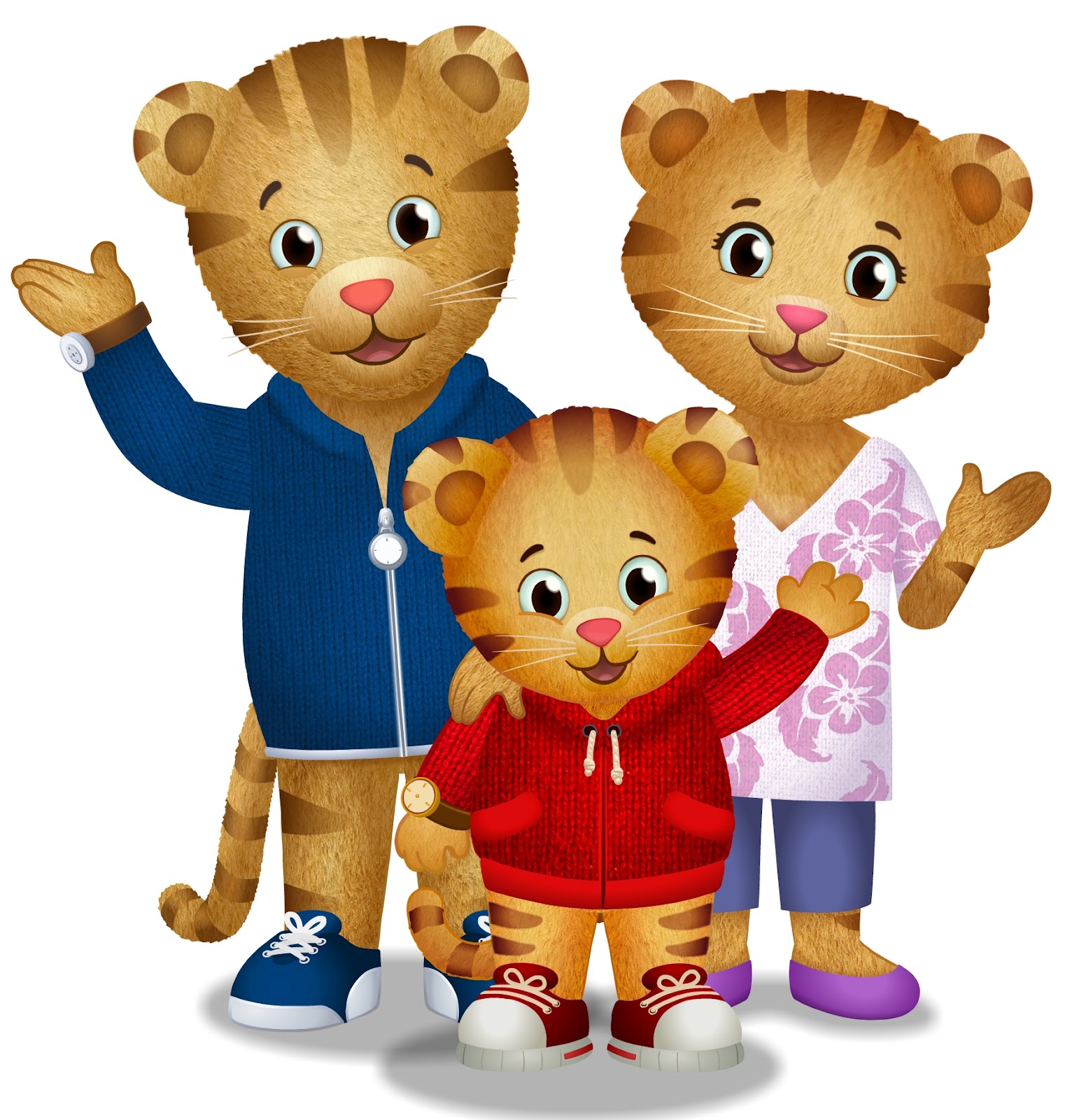Finding Your Stripes: Exploring Friendship in Daniel Tiger's Neighborhood

In the vibrant landscape of children's television, where flashing lights and frenetic pacing often reign supreme, a gentle, tiger-striped presence offers a refreshing alternative. Daniel Tiger's Neighborhood, inspired by the legacy of Mister Rogers' Neighborhood, presents a world where empathy, emotional regulation, and, crucially, the power of friendship are central themes. This exploration into the world of Daniel Tiger’s Neighborhood will examine how the show portrays supportive friendships and the valuable lessons it imparts to young viewers.
The show, through its simple narratives and catchy musical interludes, constructs a framework for understanding and navigating social situations. Daniel and his friends, Katerina Kittycat, O the Owl, Prince Wednesday, and Miss Elaina, encounter everyday challenges that resonate with preschoolers. From sharing toys to dealing with disappointment, these scenarios become fertile ground for learning valuable social-emotional skills.
The genesis of Daniel Tiger’s Neighborhood lies in the desire to carry forward Fred Rogers' enduring message of kindness and understanding to a new generation. Drawing upon the foundational principles of Mister Rogers’ Neighborhood, the creators crafted a world that mirrors the complexities of childhood while offering clear, actionable strategies for navigating those complexities. The show's emphasis on helping others is a key component of this legacy, woven into the fabric of the neighborhood itself.
The importance of Daniel Tiger’s Neighborhood’s portrayal of supportive friendships cannot be overstated. In a world increasingly dominated by screens and virtual interactions, the show offers a tangible model of real-world connection. It emphasizes the value of empathy, active listening, and understanding the perspectives of others, crucial skills for building and maintaining healthy relationships.
One of the main issues the show tackles is the inevitable conflict that arises in any relationship. Disagreements and misunderstandings are not portrayed as catastrophic events but rather as opportunities for growth and learning. Daniel and his friends learn to communicate their feelings, apologize when necessary, and ultimately, work through their differences, reinforcing the idea that even the strongest friendships require effort and understanding. This emphasis on conflict resolution provides a powerful tool for young viewers, equipping them with strategies for navigating their own interpersonal challenges.
The show offers several benefits for young viewers. Firstly, it provides a relatable depiction of preschool life, normalizing common experiences and validating children's emotions. Secondly, it offers practical strategies for handling difficult situations, equipping children with the tools they need to navigate social interactions successfully. Finally, it promotes prosocial behaviors, such as helping others and showing empathy, fostering a sense of community and kindness. For example, when Daniel helps O the Owl overcome his fear of the dark, he demonstrates the power of compassion and support.
Parents can incorporate the show’s lessons into everyday life by encouraging children to identify with the characters and discuss their feelings. Talking about Daniel's experiences can open up conversations about similar situations in the child's life. Furthermore, parents can model the behaviors shown in the program, such as active listening and expressing empathy, creating a positive and supportive home environment.
Frequently Asked Questions about the show and its themes include: What are the main characters in Daniel Tiger’s Neighborhood? What are some of the key social-emotional skills taught in the show? How can parents use the show to help their children? How does the show address difficult emotions like anger and frustration? What is the connection between Daniel Tiger’s Neighborhood and Mister Rogers’ Neighborhood? How does the show promote kindness and empathy? What are some examples of helpful behaviors depicted in the show? How does the show address conflict resolution among friends?
Tips and tricks for using the show effectively include watching episodes together and discussing the characters' actions, using the show's musical strategies in real-life situations, and incorporating the show's themes into everyday conversations.
In conclusion, Daniel Tiger's Neighborhood offers a powerful testament to the enduring importance of kindness, empathy, and supportive friendships. Through relatable characters and engaging storylines, the show provides a valuable framework for navigating the complexities of social-emotional learning. By modeling positive behaviors and offering practical strategies for handling difficult situations, Daniel Tiger’s Neighborhood empowers young viewers to build strong relationships, develop crucial social skills, and ultimately, become caring and compassionate members of their communities. The show’s enduring legacy lies in its ability to foster a sense of connection and understanding, reminding us all of the profound impact of simple acts of kindness and the transformative power of friendship. Its messages resonate not just with preschoolers but also with parents and caregivers, creating a shared experience that strengthens family bonds and promotes a more compassionate world, one gentle roar at a time.
Seal the deal mastering the contract award letter
Green monster energy drink nutrition facts decoded
Mastering hydrochloric acid safety a practical guide












